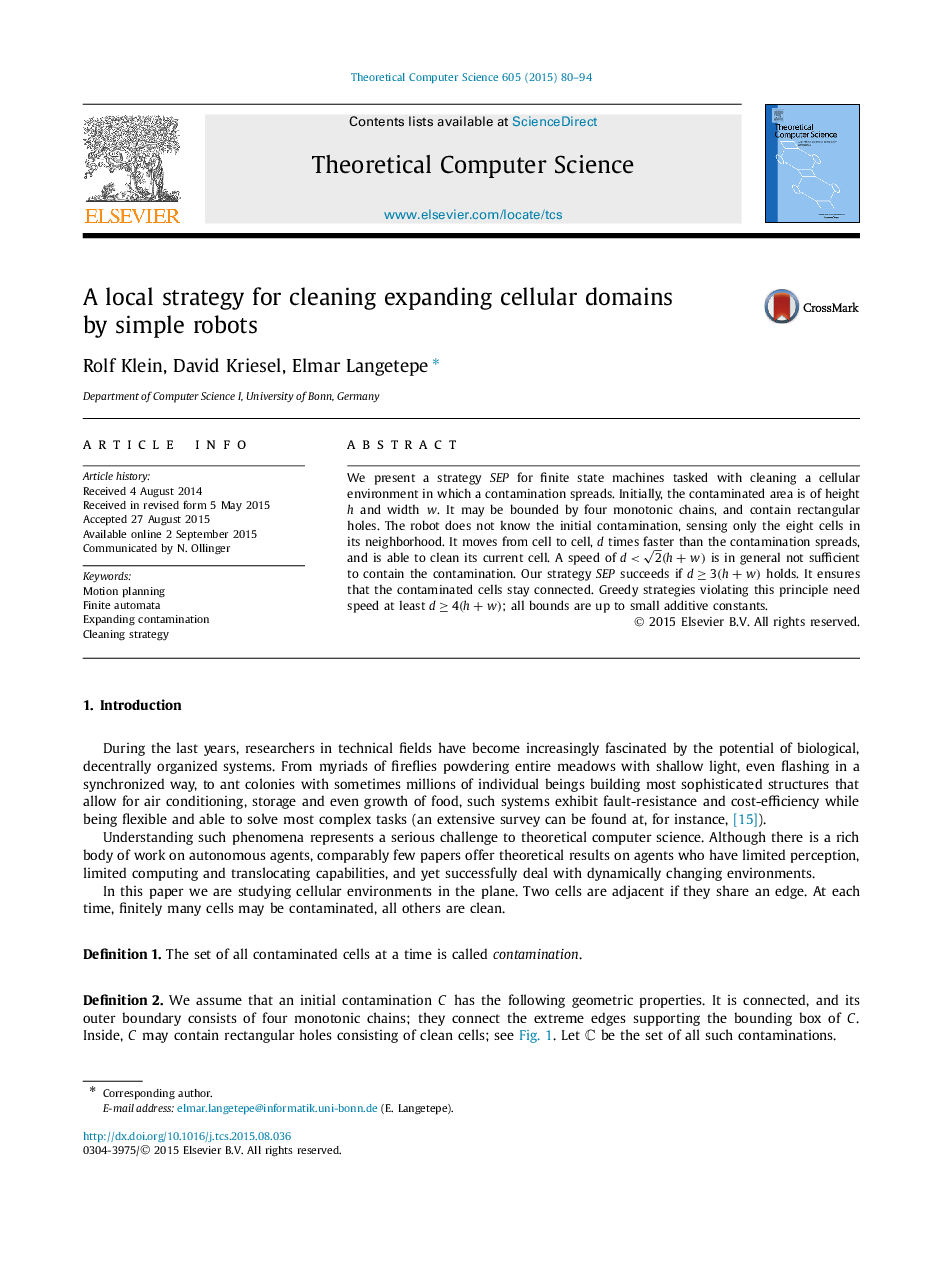| Article ID | Journal | Published Year | Pages | File Type |
|---|---|---|---|---|
| 6876011 | Theoretical Computer Science | 2015 | 15 Pages |
Abstract
We present a strategy SEP for finite state machines tasked with cleaning a cellular environment in which a contamination spreads. Initially, the contaminated area is of height h and width w. It may be bounded by four monotonic chains, and contain rectangular holes. The robot does not know the initial contamination, sensing only the eight cells in its neighborhood. It moves from cell to cell, d times faster than the contamination spreads, and is able to clean its current cell. A speed of d<2(h+w) is in general not sufficient to contain the contamination. Our strategy SEP succeeds if dâ¥3(h+w) holds. It ensures that the contaminated cells stay connected. Greedy strategies violating this principle need speed at least dâ¥4(h+w); all bounds are up to small additive constants.
Keywords
Related Topics
Physical Sciences and Engineering
Computer Science
Computational Theory and Mathematics
Authors
Rolf Klein, David Kriesel, Elmar Langetepe,
